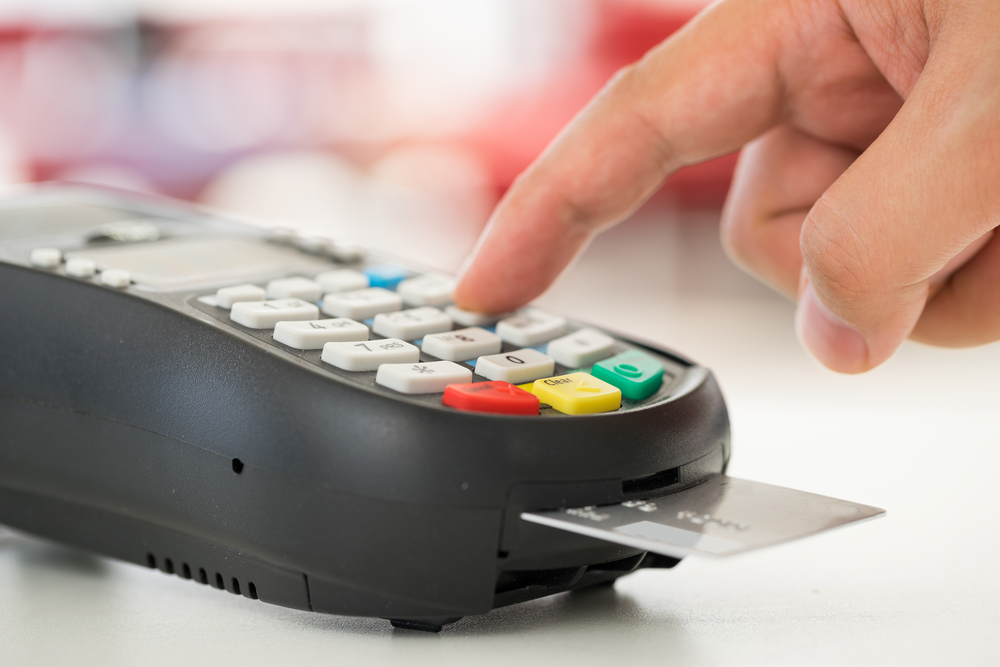Is Your Business Considered High Risk Credit Card Processing?

If your business wants to partner with a merchant services provider to accept forms of payment beyond cash (like debit cards, credit cards, and online ecommerce payments), it's likely you'll undergo an evaluation by the payment processor to determine if your business is the right fit. Some payment processors will identify certain businesses as a high risk merchant account. In some cases, high risk credit card processing can result in higher fees or stricter partnership agreements. In other cases, you may not be approved to work with a payment processor at all.
Every merchant services provider will have their own unique guidelines to determine whether or not a business is high risk. But, there are usually some indicators that your business may be considered a merchant account that is high risk. Here are some to be aware of.
You Deal in a Questionable Business
Certain types of businesses with bad reputations or that are associated with scams, such as pyramid scheme networking marketing businesses, may also be viewed questionably.
Some common types of businesses that are identified as high risk include:
- Paid chat sites and psychics
- Sexually-oriented merchants
- Gambling and fantasy sports
- Legal drug stores, such as cigarettes or e-cigarettes
- Check cashing services
- Firearms and weapons dealers
- Lotteries and sweepstakes
- Pawn shops and antique shops
Various business types may be automatically deemed as high risk, solely because of the products they sell or services they provide.
You Have a History with Fraud
If your business has been a victim of fraud, one of the reasons may be that you didn't take the proper credit card fraud prevention steps to protect it. Certain businesses become targets of fraudsters because they have vulnerabilities that make them easy to commit fraud against. A merchant services provider may then place the blame on you and not want to risk associating their business with yours.
During the payment processing application process, the provider will look into your business’s history with chargebacks and customer transaction disputes. If the number is high or if something seems out of the ordinary, your business may be labeled as high risk.
Your Business Is Not in the Home Country of the Merchant Services Provider
Even if you primarily sell to customers outside your home country, having headquarters in a country outside of where the merchant services provider is located may be enough to label your business as high risk. Banking regulations between countries may differ immensely, which could be a factor.
Poor Personal or Business Credit
A merchant services provider may investigate the personal credit history of a small business owner when determining risk, especially when the business is a solo venture or consists of a small team.
Also, if there have been issues with the use of business credit cards by the owner or employee, or issues with making loan or business credit payments, a merchant services provider may label a business as high risk.
Sales Prices
For businesses dealing with high-priced items, that may be a risk factor for certain merchant services providers. For example, B2B businesses or merchants that sell costly items that can be purchased with a credit card, such as furniture, may be high risk, simply because each transaction is much more valuable.
What to Do If You're a High Risk Merchant Account
Any time you're considering applying for merchant services, and especially if you think you may be a high risk merchant account, you should read the terms for any merchant services provider before you apply. This can save you time putting together an application for a provider that will likely reject you.
If you do apply and are rejected, you may still have hope to get payment processing for your business. Again, each provider's criteria is different. There are some payment processors that work exclusively with businesses that are considered high risk. Other providers may accept high risk merchants but just charge higher fees or require longer contracts.
You can try to negotiate with the merchant services provider you want to work with on fees or contracts. Be aware that you will likely be required to supplement a rolling reserve, which is a portion of sales proceeds that are set aside to cover unexpected expenses like chargebacks, or to protect the merchant services provider if you suddenly go out of business. You can work toward eliminating this by safeguarding your business from fraud and by showing the merchant services provider you pose less risk over time.
Need Payment Processing?
You should always be completely honest about your business to any merchant services provider you're applying for. Lying about your business could result in a merchant services shutdown that can hinder your ability to find any payment processor in the future. If you're in need of secure payment processing, contact Humboldt for a consultation. We work with all types of businesses across the U.S., and we're happy to discuss how we may be able to help you.



